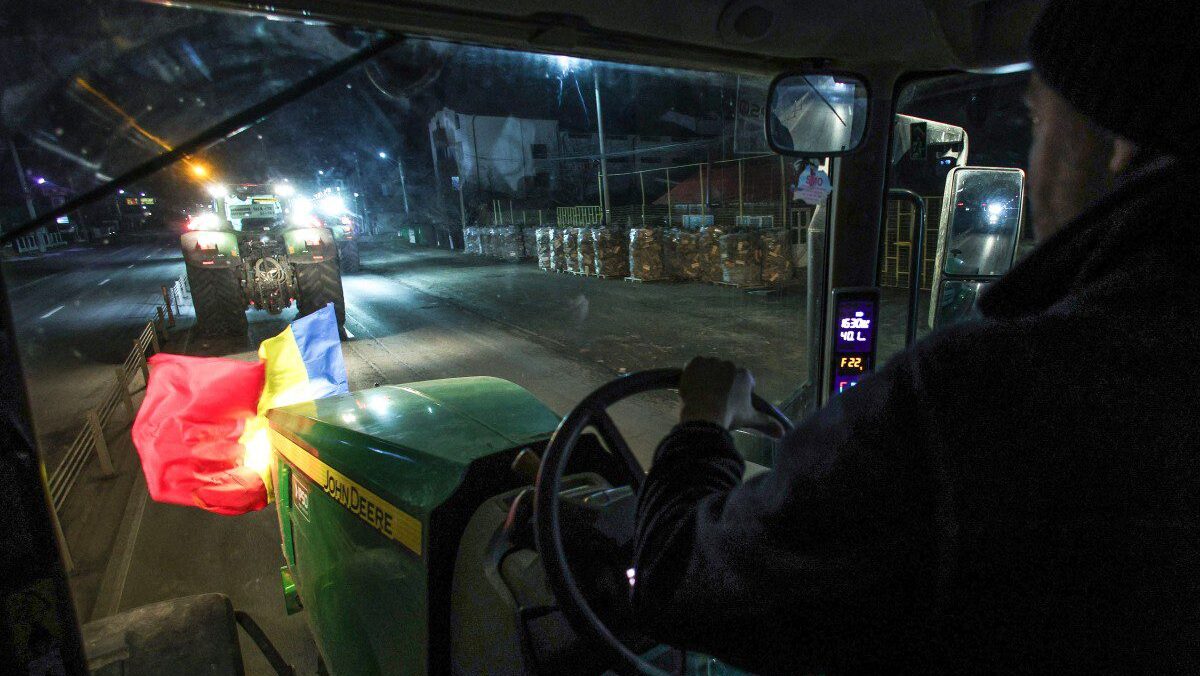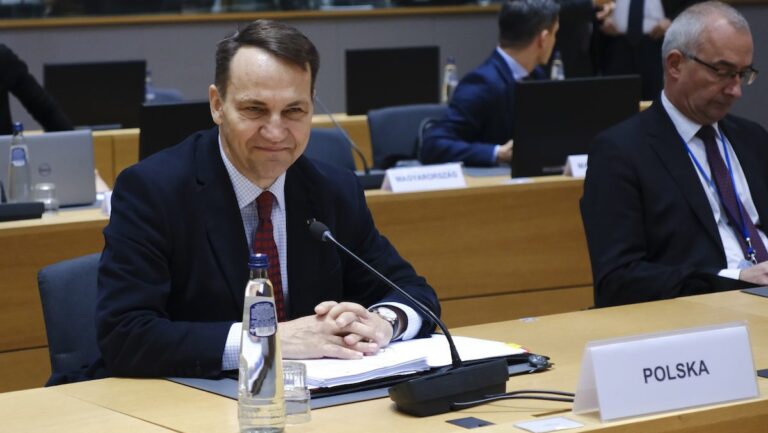Romanian truckers and farmers have taken to the streets protesting high taxes, high prices of diesel, low compensation for their products, and Ukrainian imports of grain. The protests also indicate a growing anger with EU-led ‘green’ policies.
On Monday, protesters blocked the ring road around the capital of Bucharest in the sixth consecutive day of demonstrations.
Protests in various cities in Romania started last Wednesday. By Sunday, truckers and farmers slowed road traffic around Bucharest and other cities, as well as blocking parts of the border with Ukraine. Taken together, the demonstrations look similar to the situation unfolding in Germany, where farmers are protesting in the thousands against the government removing subsidies on diesel fuel in a drive to meet Net Zero goals and fill a budget gap.
The truck drivers’ complaints include high insurance and tax rates and long waiting times at the borders. Farmers are demanding a moratorium on loan repayments, quicker payout of government subsidies and compensation for those affected by drought and by the market disruption caused by imports of Ukrainian grain.
With the Black Sea mostly blocked since Russia’s invasion of Ukraine, the Romanian port of Constanza has become an important hub for Ukrainian grain exports, particularly since the EU lifted duties and import limits.
Starting last Wednesday, dozens of farmers and truckers drove at low speeds towards Bucharest. Some told Euractiv they were inspired by similar German protests.
“There are rules that we can no longer bear,” farmer Danut Andrus explained to journalists, adding that in the circumstances, he and his colleagues can no longer even obtain bank loans.
“We are no longer bankable, we don’t have the possibility to operate in the country,” he explained, adding that the protests would continue “until these authorities understand that their inability to manage a country is real.”
The EU commission’s decision to lift restrictions on Ukrainian agriculture imports into the block has been controversial since its inception in 2022, with farmers decrying the market disruption and the commission seeming unresponsive.
On Sunday, representatives from the Romanian ministry of transportation, agriculture and finance met with protesters, but later announced they did not reach any agreement.
Protesters had asked the government directly for reassurance that no Ukrainian cereals—intended for transit—remained on Romanian territory.
In response, the government acknowledged protesters’ concerns and said it hoped to implement a system of electronic seals on Ukrainian goods. Hypothetically, this would prevent the flooding of Romanian markets with goods instead of transiting them out of the country—as originally planned in the EU ‘solidarity lanes’ scheme.
“These are measures related to better organized management at our level, because indeed you have rightly complained. Here we prove you right because we have to tighten all these measures related to the transit of Romania and it is not by chance that we introduce the electronic seal of the goods. There are 2,000 seals that we intend to purchase and which I hope we will be able to have operational by July 1st,” Finance Minister Marcel Boloş said following the meeting with protesters.
Although the Boloş ministry and protesters did not reach an agreement on how to immediately address farmers’ financial needs, Romanian media reports that the government is preparing a package to support farmers and provide access to credit. This would include an additional package for animal breeders with a total pot of €72.4 million,
The government also reminded protesters that these measures would need to be approved by the EU Commission as part of common market rules.
Negotiations between the Romanian government and representatives of the farmers were resumed Monday and expected to last Tuesday as well.
Romanian farmers are not alone; their counterparts in the Visegrád Group have been pointing out problems since December of being undercut by Ukrainian imports and calling for a coordinated response from their national leaders. Demonstrations are planned in Bulgaria and Poland.
Hungary’s minister of agriculture István Nagy said Monday that Bulgaria, Poland, Hungary, Romania, and Slovakia have requested the European Commission institute import duties on Ukraine grain.
“Brussels must find a solution and help farmers to deal with market disturbances caused by Ukrainian agricultural products,” Nagy said in a post on Facebook.






